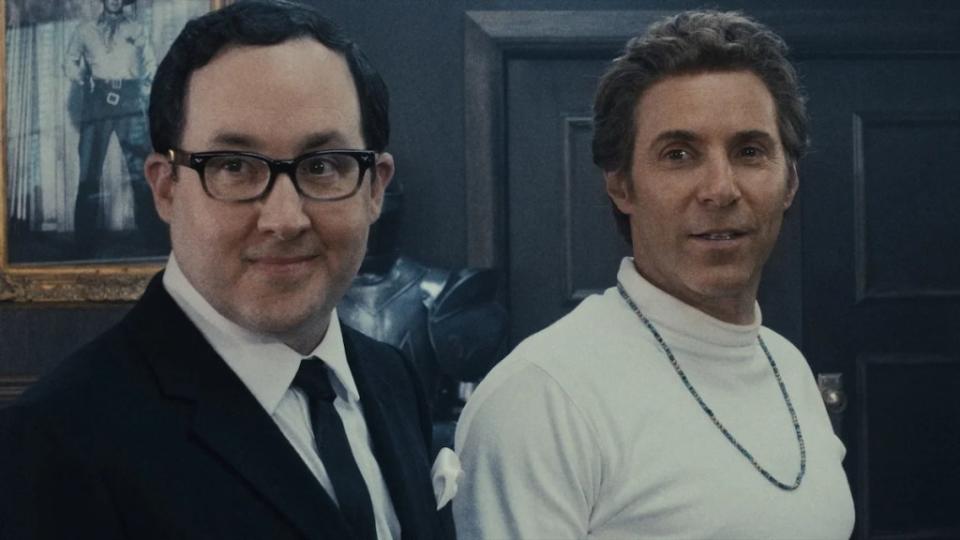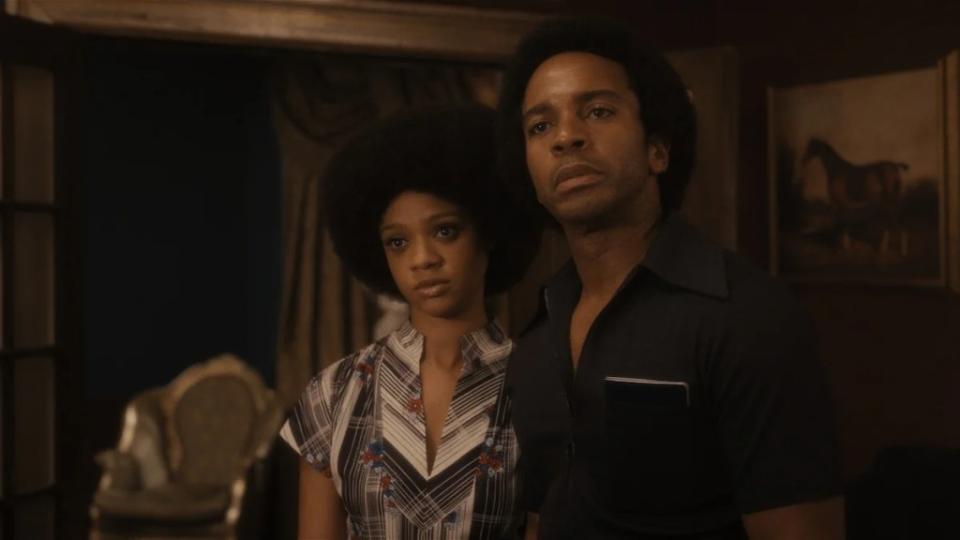‘The Big Cigar’ Review: Apple TV+ Limited Series Should’ve Been a Movie
“The Big Cigar” had a long journey to the screen. It was first set up at Sony in 2012 as a film adaptation of a Playboy article by journalist Joshuah Berman, who had previously written the article that became “Argo,” a film that made $230 million and won the Academy Award for Best Picture. “The Big Cigar,” with its ‘70s setting, stranger-than-fiction story and political thriller plot, was obviously intended to be the next “Argo.”
But the business has changed, and there aren’t a lot of movies like “Argo” anymore. Those kinds of stories are now more likely to be turned into limited series, often for streaming services that didn’t exist in 2012. By the time “The Big Cigar” finally went into production, it had transformed into a six-episode limited series by Warner Bros. TV for Apple TV+.
While it’s pretty miraculous that “The Big Cigar” got made at all, the limited series format doesn’t serve it creatively. “The Big Cigar” was meant to be a movie.
The simplest way to describe “The Big Cigar” is a retelling of the wild but true story of the time movie producers Bert Schneider (Alessando Nivola) and Steve Blauner (P.J. Byrne) smuggled Black Panther Party co-founder Huey P. Newton (André Holland) to Cuba to escape a murder charge in 1974. But it’s really a reverential biopic of Newton spanning from when he started the revolutionary organization in Oakland in 1966 to when he arrived in Cuba eight years later. It’s also supposed to be a frenetic crime caper dripping with ‘70s Hollywood excess, and a thematic exploration of loyalty, idealism and the still-untapped revolutionary power of Hollywood. The story feels unfocused, like it’s trying to do too many things, and ends up not doing any of them particularly well.
The escape plot is supposed to serve as a narrative spine that gives “The Big Cigar” a structure and a hook, and self-consciously so: Schneider explains during a writing session with Newton and friends that a biopic should be built around a moment in its subject’s life that means something, and how an accessible crime plot helps Trojan horse subversive themes into a mainstream narrative, like how his film “Easy Rider” had a heist plot that helped make its boundary-pushing exploration of youth culture more marketable. But Newton’s escape to Cuba is not actually a thematically meaningful enough moment from his eventful life to build a show around, nor is it executed in a narratively satisfying way.
The show constantly jumps back and forth from the escape plot happening in its present to earlier moments in Newton’s life that explain how he got there. In some episodes, it feels like almost every scene alternates between times. Episode 2 alone has eight separate date-and-location-establishing title cards. The relentless forward-and-backward motion keeps “The Big Cigar” from gathering momentum. It fills hours of runtime with backstory. It’s as if creator Jim Hecht and Janine Sherman Barrois know that the escape plot is insubstantial compared to the rest of Newton’s life, so they keep cutting to what’s actually important to establish why the escape matters.

Which brings us back to the former point about the choice to center the narrative around an escape plot in the first place. Huey P. Newton’s life story does not lend itself to a caper. Newton is one of the 20th century’s most complex figures. He was a philosopher and a criminal, a liberator and a threat, a visionary who did wonderful and terrible things. He was a leader whose movement was thwarted by internal and external forces, but nevertheless remains a powerful symbol of revolution because of what his failures represented. He embodied contradiction – “They say it’s a nation of laws, but what governs everything in the universe is the law of contradictions,” Holland narrates in the show’s opening line before listing off some dialectics that occur throughout the show. (One contradiction not listed: a show about America’s most important self-professed Marxist-Leninist being distributed by its largest capitalist enterprise.)
Squeezing a character as multitudinous as Newton into a character arc requires more deftness and seriousness than Hecht and Barrois manage. “The Big Cigar’s” tone is erratic, alternating between sincere when the show is with the Panthers and mildly satirical when it’s with the radical chic Hollywood crew (though it has some admiration for Schneider, who sparked a Hollywood revolution with “Easy Rider” and put his money where his mouth was politically). At times, the show veers into hero worship unbecoming of Newton, who was fleeing America because he was accused of murdering a 17-year-old prostitute (he was acquitted in 1979 after two deadlocked trials, in which the main witness declined to testify after some Panthers tried to assassinate her). His story is a rise-and-fall tragedy, not a fun, freewheeling dramedy.
The escape to Cuba is certainly not the most important time of Newton’s life, but if “The Big Cigar” had been free to be an iconoclastic movie more narrowly focused on that moment, rather than trying to encompass several eras, themes and tones, it could have been more coherent. It also would have been freed from having to fill six episodes with two hours of story. It wouldn’t have been the definitive Huey Newton movie, but it would have known what it was.

André Holland, however, knows exactly what he’s doing, and his performance keeps “The Big Cigar” engaging even when the plot struggles. Holland is a subtle actor who excels in small moments, and he’s perfectly cast for the soft-spoken Newton. The show’s best moments are the ones where Holland gets the viewer to lean in to get a closer look at what’s going on behind his eyes.
Further praise is due to Don Cheadle, who directs the first two episodes. He establishes an appealing ‘70s-influenced visual style, with grainy faux-film and clever split-screen montages. And the show’s dialogue is intelligent. Hecht and Barrois clearly understand the material and have a lot of passion for it, but don’t seem to have gotten the chance to fully develop what they wanted to say about it.
“The Big Cigar” ultimately feels like it should’ve been told in a different way. Huey P. Newton deserves the “Oppenheimer” treatment – or at least the “Judas and the Black Messiah” treatment. If it takes another 12 years for that to be a viable movie again, it will be worth it.
“The Big Cigar” premieres Friday, May 17, on Apple TV+.
The post ‘The Big Cigar’ Review: Apple TV+ Limited Series Should’ve Been a Movie appeared first on TheWrap.


